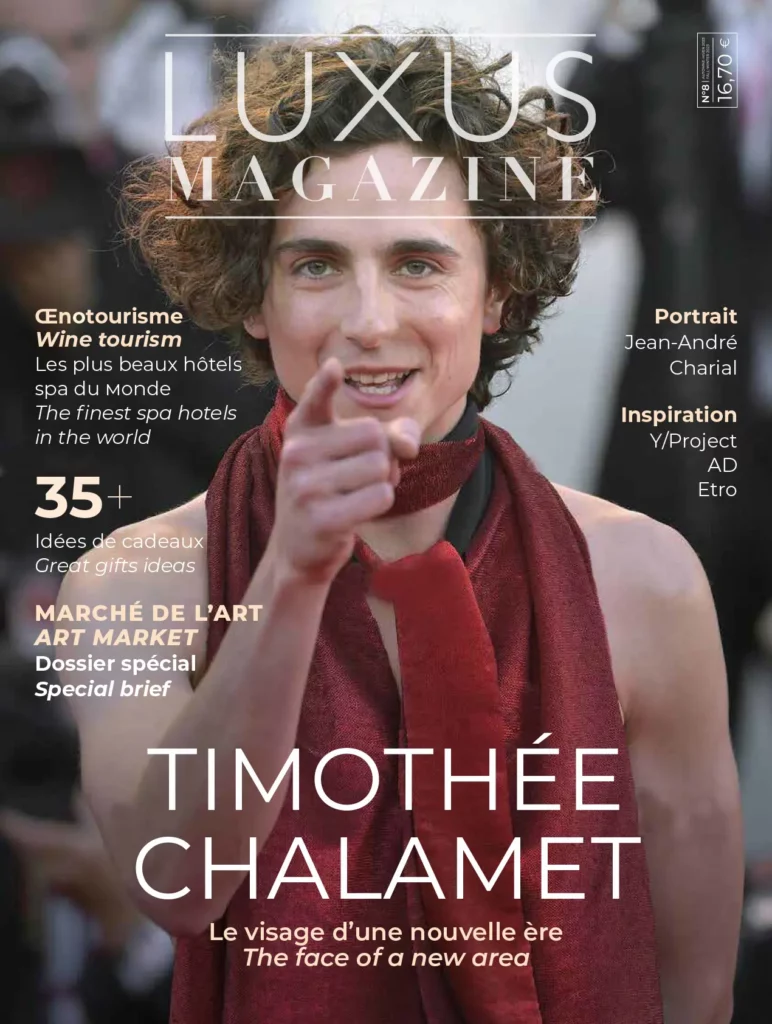Chafik Gasmi (Chafik studio) : “When we create a luxury place, it will be sustainable in essence”

The architect Chafik Gasmi has worked with major luxury houses (Dior, Givenchy, Guerlain, Kenzo, Vuitton…), he was notably artistic director of Sephora (Lvmh) then Baccarat and more recently retail design for Lancôme.
In 2004, he founded his own studio, Chafik Studio, where he leads projects combining luxury and ecology. He shares with us his thoughts on the evolution of the sector’s boutiques.
You’ve designed boutique concepts for some of the biggest luxury houses. What are the new trends you see emerging in this universe?
As an architect, we usually look 20 years ahead. And the fundamental trend I’ve been sensing for some time is that of the convergence of uses. Just like what happened with the Smartphone, grouping multiple functions, it should be the same in transit places, destined to become hybrids, at the same time store, restaurant, bar, museum, theater, hotel… These activities must no longer be satisfied with being adjacent but integrated into a unit of place. In this new scheme, it is the hotel, as it should exist, that should be the winner. Open 24 hours a day, 7 days a week, it already offers lodging, restaurants, workrooms, a boutique… Moreover, we no longer create juxtaposed and inert places with just a sufficient offer, but with a program, made up of animations, which can change every week, even day or even hour. This forces us to keep flexibility according to the current events. This evolution also raises the question of the training of employees who will no longer be confined to a single skill. Cross-functional roles (artistic, image, monitoring, human resources, training, etc.) will become increasingly important.
You have made the marriage between ecology and luxury your trademark. Is this still a distinctive element when all companies are now integrating sustainable development into their approach?
I was a very happy art director (at Sephora, editor’s note) at Lvmh, but I wanted to set up my own studio so that I could practice my vocation, my profession as an architect, with the ecological dimension as an imperative. The first project was a bioclimatic and biodegradable hotel in the Algerian desert. Today, the ecological dimension is an imperative and the challenge is not that it is a distinctive element but on the contrary, that it becomes a fundamental element for everyone.

What do you consider to be the most interesting recent luxury store openings from a sustainable point of view?
When you create a luxury place, it will be sustainable in essence because the criteria of costs and requirements are high. There is a store that I particularly appreciate because I participated in its creation: Lancôme on the Champs Elysées, which opened just before the covid. It is one of the first luxury boutiques to obtain the LEED certification (Leadership in Energy and Environmental Design), the most demanding in terms of environmental respect.
New technologies are increasingly being used in the temples of luxury. How can they be integrated into stores without dehumanizing them?
To create the aforementioned Lancôme store, we used virtual reality (VR) as a real design and discussion tool, for subjects that raised hesitations. Following this experience, we decided to make it a tool for us and our studio clients as well. Virtual reality opens new possibilities. In the world of the Metaverse, we are no longer subject to gravity, we no longer need shelves, we gain freedom of experience. You can even look under a car by lifting it up if you want! What dehumanizes is the fact of reproducing the same thing, but less well, than in the physical reality. For our part, we are currently working for the Metaverse on an online sales site in VR for the beauty brand Demain. We imagined that the walls would be waterfalls, something that is ecologically impossible in real life. Alongside the physical and the e.commerce, we create a third world, more poetic, more ecological, rich in experience and emotion. All these worlds will become complementary and mutually enriching.

How do you imagine the luxury boutiques of the future?
Today, luxury boutiques are often empty and sad and full of logos. Tomorrow, we should return to a more interior luxury, with more discreet and delicate signatures. While the boutiques will have to be full of life and joy, with people who share the same values and passions and who live moving and enriching experiences. They will be open to the arts, including the living arts. The key criteria are beauty, elegance and imagination

Read also > THE MOST INCREDIBLE BOUTIQUES IN PARIS
Featured photo : Chafik Gasmi © Stéphane de Bourgie
Après plus 20 ans au Journal du Textile, dont elle a notamment assuré la rédaction en chef adjointe, diplômée d’un Master en marketing de luxe de l’ISML, Sophie Bouhier de l’Ecluse est une spécialiste de la filière mode, textile et luxe.



